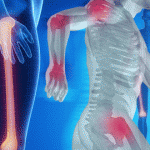Dr. Amanda King Elected President of Caribbean Association for Rheumatology The Caribbean Association for Rheumatology (CAR) elected Amanda King, MBBS(UWI), MRCP(UK), FRCP(Glas.), president during the 7th Annual CAR Scientific Meeting this summer. This year’s CAR meeting concentrated on education for general practitioners, because there are still some islands without a rheumatologist. She is the only rheumatologist…







